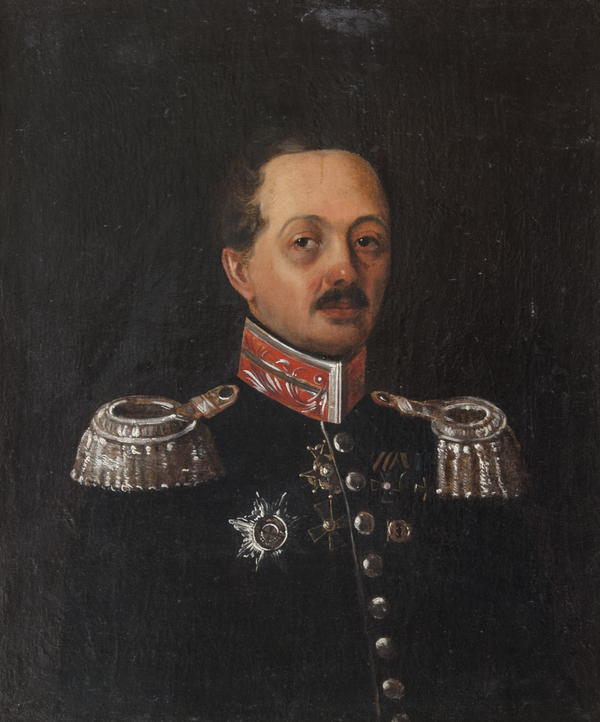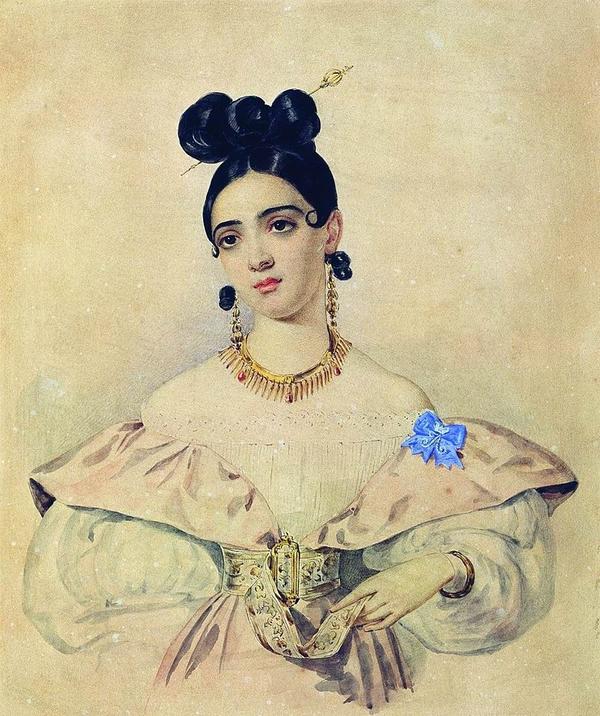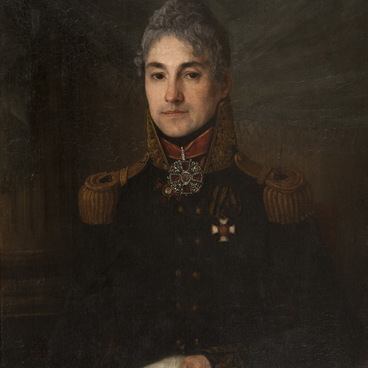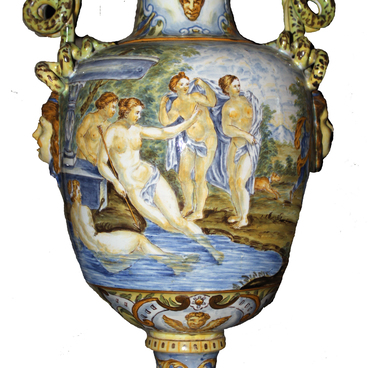The portrait of nobleman Irakli Boratynsky got into the holdings of the Tambov Regional Ethnography Museum along with portraits of other members of the Boratynsky family. They were gifted to the Museum in 1919 by Mikhail Boratynsky, a historian, biographer, and descendant of the clan. The portrait was painted by an unknown artist and designed in the same style as the rest of the series: Boratynsky is depicted waist-high, dressed in a military uniform and wearing awards. In this portrait, the artist selected to omit the interior; the nobleman is depicted against a simple dark background.
Irakli Boratynsky was born in 1802 in the village of Vyazhli, Tambov province. He was the son of Abram Boratynsky. His elder brother, Evgeny Boratynsky, was a well-known poet of the first half of the 19th century. After a couple of years, the family moved to the family estate Mara.
Irakli received home education. Later, he entered the Page Corps, the most prestigious military educational institution in Russia. Boratynsky participated in the Russo-Persian and Russo-Turkish wars. During the Russo-Turkish war, he distinguished himself in battles and was awarded a golden saber with the inscription For Courage engraved on its hilt; he also received the order of St. Vladimir of the 4th class with a bow and the order St. Anna of the 2nd class. In 1831, Irakli Boratynsky participated in the suppression of the Polish uprising and became an aide-de-camp in the retinue of Emperor Nicholas I. Since 1834 he served in the Grodno Imperial Guard Hussar Regiment along with Mikhail Lermontov, and in the early 1840’s, participated in hostilities in the Caucasus.
Irakli Boratynsky was born in 1802 in the village of Vyazhli, Tambov province. He was the son of Abram Boratynsky. His elder brother, Evgeny Boratynsky, was a well-known poet of the first half of the 19th century. After a couple of years, the family moved to the family estate Mara.
Irakli received home education. Later, he entered the Page Corps, the most prestigious military educational institution in Russia. Boratynsky participated in the Russo-Persian and Russo-Turkish wars. During the Russo-Turkish war, he distinguished himself in battles and was awarded a golden saber with the inscription For Courage engraved on its hilt; he also received the order of St. Vladimir of the 4th class with a bow and the order St. Anna of the 2nd class. In 1831, Irakli Boratynsky participated in the suppression of the Polish uprising and became an aide-de-camp in the retinue of Emperor Nicholas I. Since 1834 he served in the Grodno Imperial Guard Hussar Regiment along with Mikhail Lermontov, and in the early 1840’s, participated in hostilities in the Caucasus.




